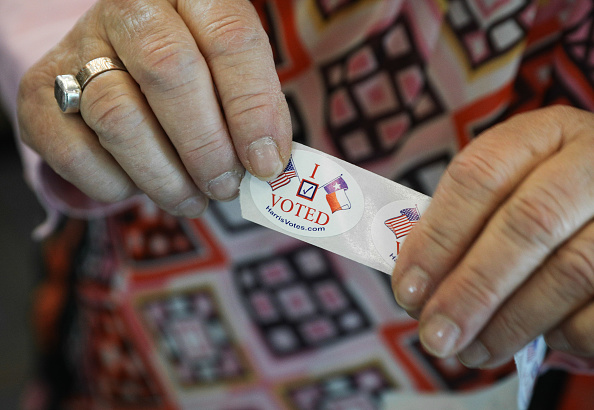Republican members of the Texas state legislature introduced a slate of bills Thursday designed to subvert election processes and curb voting rights in the state. One of them would even allow the Texas Secretary of State to overturn election results in the state’s largest Democratic-leaning county, with very little rationale for doing so.
On Thursday, Republican state senators introduced Senate Bill 1993, a bill targeting Harris County, a diverse region that includes Houston and is also the most populous county in Texas, to a Senate committee for debate.
SB 1993 would grant Secretary of State Jane Nelson (R) the authority to order a new election in Harris County “if the secretary has good cause to believe that at least two percent of the total number of polling places in the county did not receive supplemental ballots,” according to the bill text. Secretary Nelson would have the same authority granted to a district court.
The bill would “allow really low thresholds” for ordering a new election, Katya Ehresman, the voting rights program manager at Common Cause Texas, told TPM. “Anything from a machine malfunction, which can necessarily be the fault of the county or of an election administrator getting stuck in traffic—which in Houston is incredibly likely—and having a delay in providing election results to the central count station,” she said.
The bill was introduced alongside over a dozen other bills seeking to restrict voter access and overhaul the state’s elections process. Senate Bill 260, for example, would allow the secretary to suspend election administrators without cause, and Senate Bill 1070 would enable Texas to withdraw from the Electronic Registration Information Center (ERIC), a bipartisan program that maintains voter rolls across state lines that has recently been targeted by far-right propaganda.
State Republicans quietly introduced the bills in the State Affairs Committee on Thursday morning—without giving the mandatory 48-hour notice. “Every part of today’s hearing highlights the subversive attacks on elections in Texas,” Ehresman said, “and (SB) 1993 is a part of that.”
With a population of nearly 5 million, Harris County is the most populous county in Texas and the third most populous in the U.S. It became the subject of right-wing conspiracy theories back in 2020, when the county experienced some technical difficulties as election officials tried to change procedures to make voting safer during the COVID-19 pandemic.
The Secretary of State’s office conducted an audit of the general election. They found that the county “had very serious issues in the handling of electronic media,” but none of those issues actually amounted to voter fraud.
Harris County saw issues again in 2022, however, as state and local Republicans went after the county’s election administrations by recruiting and deploying poll watchers throughout the county. This prompted local Democrats to request federal observers instead. On Election Day, the county did experience several issues that often take place in more urban counties, like polling sites opening late and some running out of paper ballots, among other things.
The Texas GOP, including Gov. Greg Abbott, seized the opportunity to accuse county officials of “election improprieties,” and 22 right-wing candidates used it as an excuse to challenge their losses. Still, there was no evidence of widespread fraud.
State Democrats argue that the introduction of a flood of anti-voting legislation targeting Harris County has all been a retaliation against the county turning blue back in 2018.
“A lot of what we see is Harris County as an example of a need to invest in election administration and not penalize or detract from it,” Ehresman said.







Why did we dismiss MTG’s Divorce proposal so quickly?
It seems to me a lot of red states are dead set on a 2nd ‘End to Reconstruction.’
As Texas gets closer and closer to flipping from red state to purple state, you can expect to see more and more of these types of shenanigans. Those persons elected by the prior electorate will do whatever it takes to cling to power.
I am reminded of a recent Texas secretary of state who by fiat struck from the voter rolls anyone who in the past 30 years had obtained a Texas drivers license without then being a US citizen (obtaining a license this way is perfectly legal). This, of course, disenfranchised tens of thousands of hispanics who had become naturalized US citizens over the prior 30 years.
So, now they don’t even try to hide their animus towards democracy - it’s all out in the open. I really hope this, and other gambits like it, quickly become big examples of overreach rather than an indication of the GOP’s actual power to control the results of elections. This is getting far too close to Stalin’s “It’s not the people who vote that count, it’s the people who count the votes.”